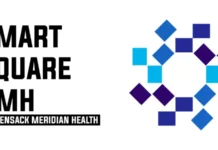Medical billing is a vital aspect of the healthcare industry, encompassing the processes and systems involved in submitting and managing claims for medical services rendered to patients. This article provides an in-depth understanding of medical billing, exploring its meaning, role, and the distinction between medical billing and coding. Additionally, we delve into the concept of denials in medical billing and its significance.
What is the meaning of medical billing?
Medical billing refers to the process of accurately and efficiently submitting claims to insurance companies or other third-party payers on behalf of healthcare providers. It involves translating the services provided into standardized codes, verifying insurance coverage, calculating costs, and submitting the claim for reimbursement. Medical billers play a crucial role in ensuring that healthcare providers receive appropriate payment for the services they render.
What is the role of medical billing?
The role of medical billing extends beyond simply submitting claims. Medical billers act as intermediaries between healthcare providers, insurance companies, and patients. They are responsible for navigating complex billing guidelines and regulations, maintaining accurate patient records, and following up on claims to ensure timely reimbursement. Additionally, medical billers handle patient inquiries regarding billing and insurance matters, providing clarity and assistance throughout the process.
Is medical billing and coding the same?
While medical billing and coding are closely related, they are distinct functions within the healthcare revenue cycle. Medical coding involves assigning specific codes to diagnoses, procedures, and services provided during patient encounters. These codes serve as the foundation for accurate billing and reimbursement. On the other hand, medical billing focuses on the submission, processing, and management of claims, ensuring that healthcare providers receive proper payment for the coded services. Although intertwined, medical billing and coding require different skill sets and responsibilities.
What is denial in medical billing?
Denial in medical billing refers to the rejection of a claim by an insurance company or third-party payer. It can occur due to various reasons, such as incomplete or inaccurate information, lack of medical necessity, coding errors, or discrepancies in insurance coverage. Denials can significantly impact the revenue cycle of healthcare providers, leading to delayed or reduced payments. Addressing denials requires thorough review, resubmission with corrections if necessary, and proactive follow-up to resolve any outstanding issues and secure proper reimbursement. BillPro is an efficient Medicaid billing software specifically designed for transportation companies in New York. With its user-friendly interface and comprehensive features, BillPro streamlines the Medicaid billing process, helping NEMT providers in New York accurately submit claims and maximize reimbursement while ensuring compliance with Medicaid regulations.
Conclusion
Medical billing plays a crucial role in the financial stability and operational efficiency of healthcare providers. By accurately submitting claims, navigating billing guidelines, and effectively managing denials, medical billers ensure that healthcare providers receive timely reimbursement for the services they provide. Understanding the nuances of medical billing, its distinction from coding, and the significance of denials empowers healthcare organizations to optimize their revenue cycle management, enhance patient satisfaction, and maintain financial viability in a complex healthcare landscape.
Read Also: A Few Notes On Anna Kane, The Wife Of Evander Kane



































































